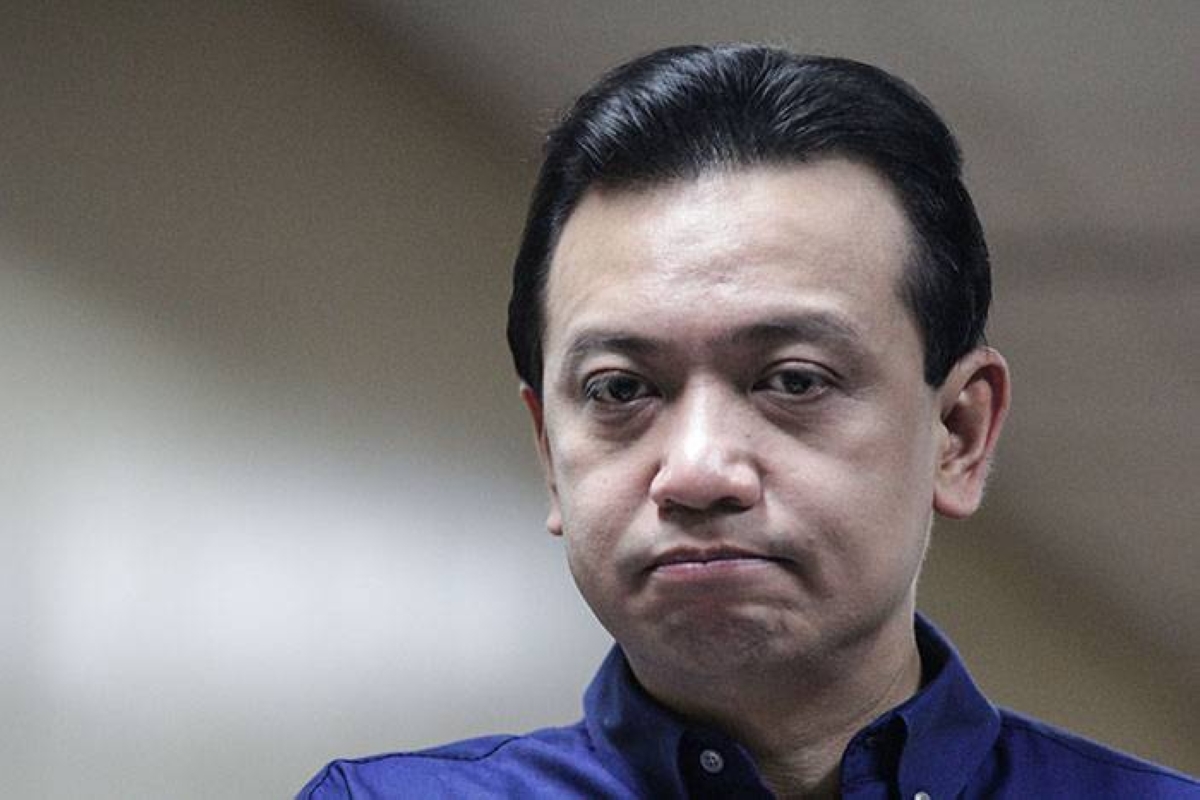The Supreme Court’s Decision and the Debate on Abuse of Power
The Supreme Court’s decision on Duterte’s amnesty revocation has sparked a nationwide debate on the abuse of power and the erosion of democratic values in the Philippines. Many critics argue that Duterte’s actions were a clear violation of the constitution and an attempt to suppress dissenting voices. They believe that the revocation of Trillanes’ amnesty was politically motivated and aimed at silencing opposition members.
The Importance of an Independent Judiciary and Checks and Balances
The ruling by the Supreme Court is seen as a landmark decision that reaffirms the importance of an independent judiciary and the rule of law. It sends a strong message that no one, not even the president, is above the law. The court’s decision also highlights the need for checks and balances in a democratic system, ensuring that power is not concentrated in the hands of a few individuals.
Allegations of Abuse of Power within the Previous Administration
Trillanes’ accusations against Medialdea, Guevarra, and Calida further shed light on the alleged abuse of power within the previous administration. These individuals, who held key positions in the government, are accused of using their authority to target and persecute political opponents. Trillanes’ gratitude towards the Supreme Court for dismissing Duterte’s amnesty revocation underscores the significance of this ruling in exposing the abuse of power and protecting the rights of individuals.
Support for the Court’s Decision and the Importance of Justice and Accountability
Former Senator Leila de Lima’s support for the court’s decision echoes the sentiment of many who view it as a victory for justice and accountability. De Lima, who herself experienced political persecution and imprisonment, understands the implications of Duterte’s actions on the democratic fabric of the country. She emphasizes that the ruling not only safeguards the rights of Trillanes but also upholds the principles of fairness and impartiality.
Implications for the Political Landscape, Democracy, and International Relations
In conclusion, the Supreme Court’s decision on Duterte’s amnesty revocation has far-reaching implications for the Philippines’ political landscape. It serves as a reminder of the importance of upholding the rule of law and protecting the rights of individuals, regardless of their political affiliations. The ruling sheds light on the alleged abuse of power within the previous administration and sends a strong message that no one is above the law.
Moreover, this ruling has the potential to restore public trust in the judicial system. In recent years, there have been concerns about the independence and impartiality of the courts in the Philippines. The Supreme Court’s decision to declare the amnesty revocation as unconstitutional demonstrates that the judiciary is committed to upholding the rule of law and protecting the rights of individuals, regardless of their political affiliations. This could lead to increased confidence in the judicial system and encourage more individuals to seek legal recourse when their rights are violated.
Additionally, the ruling serves as a reminder of the importance of due process and fair treatment under the law. By declaring the revocation as unconstitutional, the court emphasizes that even high-profile political figures are entitled to the same rights and protections as any other citizen. This reaffirms the principle that no one should be subjected to arbitrary or unjust actions by the government, regardless of their status or position.
In a broader context, the Supreme Court’s decision has implications for the international community as well. It sends a message that the Philippines is committed to upholding human rights and the rule of law, which could have positive implications for foreign relations and international cooperation. It demonstrates that the country is willing to hold its leaders accountable and ensure that justice is served, which could enhance its standing in the global community.
The Impact on Public Trust, Institutional Accountability, and International Relations
Overall, the Supreme Court’s ruling on Duterte’s amnesty revocation carries significant implications for the political landscape, democracy, public trust in the judiciary, and international relations in the Philippines. It serves as a reminder that no one is above the law and that the principles of due process and the rule of law must be upheld at all times. This decision sets a precedent for future cases and reinforces the importance of protecting individual rights and ensuring justice in the country.
Moreover, the ruling may also have implications for the Philippines’ standing in international organizations and forums. The country’s commitment to the rule of law and the independence of the judiciary could enhance its reputation and influence on the global stage. It may strengthen the Philippines’ position in advocating for human rights and democratic values in international forums, allowing it to play a more significant role in shaping global policies.
Accountability and the Protection of Individual Rights
On the other hand, there may be some countries or political leaders who view the ruling as an interference in domestic affairs. They may argue that the revocation of amnesty is a legitimate exercise of executive power and that the Supreme Court’s decision undermines the authority of the government. This could potentially strain diplomatic relations with certain countries that have a different perspective on amnesty revocation.
Nevertheless, the international community’s overall response to the ruling is likely to be positive, as it reinforces the importance of an independent judiciary and the rule of law. It serves as a reminder to all nations that political considerations should not override fundamental rights and freedoms. The Philippines’ commitment to upholding democratic principles through this ruling will undoubtedly have a lasting impact on its international standing and relationships with other countries.







